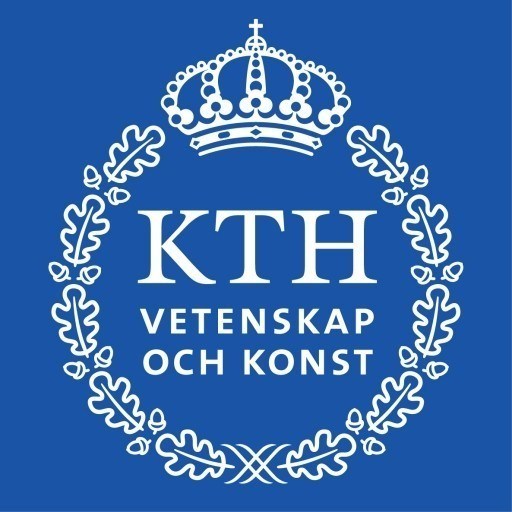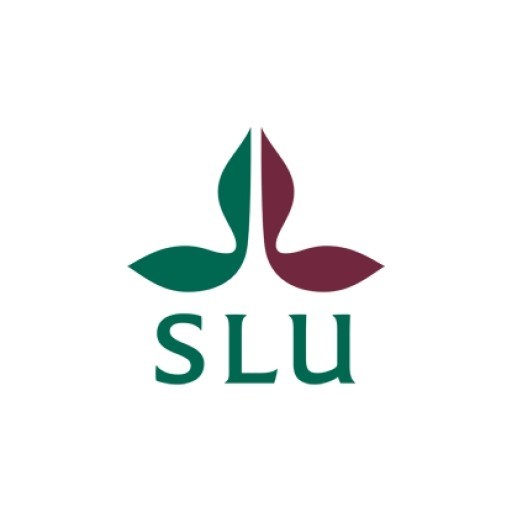Photos of university
Sustainable Energy Engineering at KTH Royal Institute of Technology is a comprehensive master's program designed to equip students with the knowledge and skills necessary to develop innovative solutions for the global energy transition. The program emphasizes the principles of sustainable development, focusing on renewable energy sources, energy efficiency, and environmentally friendly technologies. Students will explore a wide range of topics including solar, wind, hydro, bioenergy, and geothermal power, alongside energy storage, smart grids, and energy policy. The curriculum combines theoretical foundations with practical applications, enabling students to analyze, design, and optimize energy systems that meet societal needs while minimizing environmental impact. The program fosters interdisciplinary collaboration, encouraging students to work in teams on real-world projects and research initiatives. They will gain expertise in systems analysis, project management, and the economic evaluation of energy technologies. The program prepares graduates for careers in industry, consulting, research, and policy-making, contributing to the transition towards sustainable energy systems worldwide. Courses are delivered by leading experts in the field and include laboratory work, case studies, and opportunities for internships with industry partners. Students also have access to cutting-edge laboratories and research facilities at KTH. Graduates will be well-equipped to address technical, economic, and societal challenges related to sustainable energy development, making a positive impact on the environment and society. The program typically includes a thesis project, providing an opportunity for students to conduct independent research on a topic of their choice within sustainable energy engineering. Overall, this master's program aims to foster innovative thinking, technical competence, and responsible leadership to meet the pressing global need for sustainable energy solutions.
Year 1
The first study term is marked by an intensive introductory period followed by broad-based coursework giving participants a solid foundation for the particular study track that will be followed in the second term of year 1.
One of the five study profiles in the program will have to be selected during the second study term; the following are the courses that are mandatory for the specific profile:
- Sustainable Energy Utilization
- Sustainable Power Generation
- Solar Energy (offered by Högskolan dalarna)
- Turbomachinery
- Transformation of Energy Systems: Policy and Management
In the first year 6 credits of elective course/s can be taken, wide range of elective courses is offered by the Energy Technology Department and KTH in general.
Mandatory courses
- Introduction to Energy Technology 3.0 credits
- Sustainable Power Generation 9.0 credits
- Sustainable Energy Utilisation 9.0 credits
- Energy Management 6.0 credits
- Renewable Energy Technology 6.0 credits
- Energy and Environment 6.0 credits
Conditionally elective courses
- Transformation in Energy Systems and Industries 6.0 credits
- Energy Business 6.0 credits
- Airbreathing Propulsion, Intermediate Course I 6.0 credits
- Introduction to Energy Systems Analysis and Applications - Minor Course 6.0 credits
- Renewable Energy Technology, Advanced Course 6.0 credits
- Thermal Comfort and Indoor Climate 6.0 credits
- Applied Refrigeration and Heat Pump Technology 6.0 credits
- Computational Methods in Energy Technology 6.0 credits
- Applied Heat and Power Technology 6.0 credits
- Turbomachinery 6.0 credits
- Thermal Turbomachinery 6.0 credits
- Design of Photovoltaic and Hybrid Systems 5.0 credits
- Solar Heating Systems 6.0 credits
- Strategies in the Global Climate Agenda 6.0 credits
Year 2
Mandatory courses
- Applied Energy Technology - Project Course 9.0 credits
- Measurement Techniques 3.0 credits
- Theory and Methodology of Science for Energy Research 6.0 credits
Recommended courses
- Global Energy Markets and Systems in Transition 6.0 credits
- Jet Propulsion Engines, General Course 6.0 credits
- Energy Data, Balances and Projections 6.0 credits
- Energy System Economics, Modelling and Indicators for Sustainable Energy Development 6.0 credits
- Combustion Theory 6.0 credits
- Cooling of Electronics 6.0 credits
- Turbomachinery 6.0 credits
- Advanced Refrigeration and Heat Pump Technology 6.0 credits
- Green Building - Concept, Design, Construction and Operation 6.0 credits
- Achieving Energy Efficiency in Existing Buildings 6.0 credits
- Energy Policy and Planning 6.0 credits
- Aeromechanics Project Course - Part 1 6.0 credits
Degree project and thesis
Each student conducts a degree project on which he/she typically works over a period of six months. The project may be carried out in either an academic environment (university, research institute, or equivalent) or in an industrial setting (power plant, energy consulting agency, or other industry/business). This provides the student with an excellent platform in which to establish valuable experience and the contacts necessary for future career objectives.
Thesis projects conducted within the SEE Programme are often intimately linked to ongoing research activities at the Department of Energy Technology or collaborating groups at KTH.
Requirements
- A completed Bachelor's degree, corresponding to a Swedish Bachelor's degree (180 ECTS credits), or equivalent academic qualifications from an internationally recognised university.
- Students in their final year of undergraduate education may apply to KTH and, if qualified, receive conditional acceptance. If you have not yet completed your studies, please include a written statement issued by the degree awarding university. This statement must be certified and stamped by the Academic Registrar's Office, the Examinations Office or equivalent of the institution. Statements from other staff members, such as faculty members, will not be accepted.
- Students who are following longer technical programmes, and have completed courses equivalent to a Bachelor´s degree (180 ECTS credits), will be considered on a case-by-case basis.
- Cover sheet (generated from the web-based application). However, if you have a Swedish personal ID number or if you choose to upload your documents, the cover sheet is not required.
- Certificates and diplomas from previous education at an internationally recognised university.
- Transcripts of records (including course list). All courses taken and grades must be included. Sort them in reverse chronological order, i.e. put the last received document on top.
- Proof of English proficiency.
- A copy of your passport or some other document of identification. If you are from an EU/EEA country or Switzerland and are required to document your citizenship status in order to be considered exempt from paying application and tuition fees, your passport copy must be certified. If you are not a citizen of an EU/EEA country or Switzerland, certification of your passport copy is not required.
- Curriculum Vitae
- Completed summary sheet
- IELTS A minimum overall mark of 6.5, with no section lower than 5.5 (only Academic Training accepted).
- TOEFL Paper-based test: total result of 575 (written test, minimum grade 4.5)
- TOEFL Internet-based test: total result of 90 (written test, minimum grade 20)
-
A Bachelor's degree, or equivalent, in Mechanical Engineering or Chemical Engineering. Bachelor's degrees in other engineering disciplines or natural sciences may also be sufficient provided that relevant coursework in technical thermodynamics, fluid mechanics or heat transfer is included in the curriculum.
The specific requirements may be assessed as not fulfilled if
1. the average grade is in the lower third on the grading scale used (above pass level)
2. the degree awarding institution is not considered to meet acceptable quality standards by the authorities of the country in which the institution is located
3. the degree does not qualify for admission to equivalent Master level in the country where the degree is awarded
Scholarships
- KTH Scholarship
- Russian Presidency Scholarship for Abroad Studies
Sustainable Energy Engineering at KTH Royal Institute of Technology is a master's program designed to prepare students for a career in the rapidly evolving field of renewable energy and sustainable power systems. The program emphasizes the development of technical expertise alongside an understanding of economic, environmental, and societal aspects of sustainable energy solutions. Students gain knowledge in areas such as energy conversion, power generation, energy storage, and the integration of renewable resources into existing power grids. The curriculum combines theoretical courses with practical projects, fostering innovation and problem-solving skills essential for addressing global energy challenges. The program is suitable for students with a background in engineering, physics, or related fields who wish to specialize in sustainable energy technologies and contribute to the transition towards a low-carbon society. Throughout the program, students have opportunities to engage with cutting-edge research and collaborate with industry partners, gaining valuable insights into real-world applications. The program culminates in a master’s thesis that allows students to conduct independent research on a relevant topic within sustainable energy engineering. Graduates are equipped to pursue careers in energy consultancy, engineering design, research, and policy development in both the private and public sectors. The program is taught in English at the KTH Campus in Stockholm, providing an international learning environment and networking opportunities with students and professionals from around the world.




